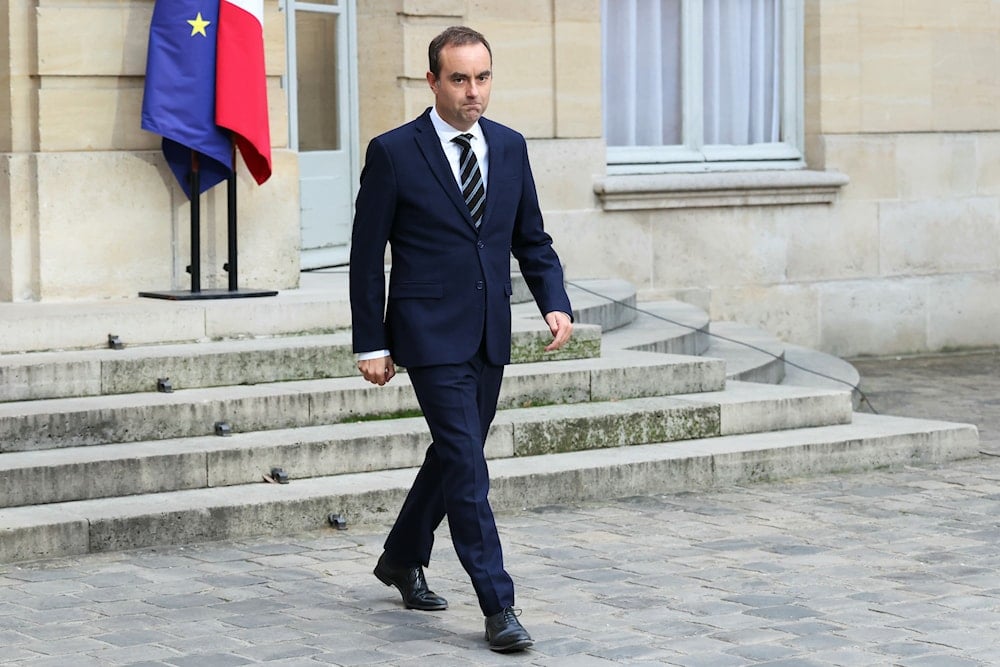France’s new PM Lecornu assembles cabinet amid political tensions
Sébastien Lecornu’s government blends familiar Macron allies with conservatives as France’s new prime minister seeks stability amid fiscal strain and coalition friction.
-

French Prime Minister Sebastien Lecornu arrives to deliver a statement at the Hotel Matignon in Paris, Friday, Oct. 3, 2025, before a round of consultations with political parties ahead of the announcement of the new government. (Pool Photo via AP)
French Prime Minister Sébastien Lecornu on Sunday announced key members of his new government, ending weeks of uncertainty following his appointment last month.
Former Industry Minister Roland Lescure, a close ally of President Emmanuel Macron and a contender for the premiership last year, takes over as finance and economy minister, succeeding Eric Lombard. Lescure faces immediate challenges as tense negotiations over next year’s budget are already underway.
In a surprising move, Bruno Le Maire, the former economy minister who left politics last year, returns to government as armed forces minister, a role Lecornu himself held before his promotion.
Overall, Lecornu’s Cabinet includes a few new faces, reflecting the continuity of Macron’s centrist political forces despite Lecornu being the president’s fifth prime minister in less than two years.
Wider context
Many ministers from Macron’s previous administrations retained their posts, including Education Minister Élisabeth Borne and Overseas Territories Minister Manuel Valls, both former prime ministers. Foreign Minister Jean-Noël Barrot, Justice Minister Gérald Darmanin, and Budget Minister Amélie de Montchalin also remain in office.
Bruno Retailleau, the hardline leader of the conservative Les Républicains, will continue as interior minister. Fellow conservatives Annie Genevard and Rachida Dati remain as agriculture and culture ministers, respectively.
An individual close to Lecornu, speaking on condition of anonymity, told Politico that junior ministers would be named after the prime minister addresses parliament for the first time on Tuesday.
Political tensions escalate
The 39-year-old Lecornu has been tasked with negotiating a slimmed-down budget after his predecessor, François Bayrou, was toppled in a no-confidence vote last month. On Friday, Lecornu offered a major concession to opposition parties, pledging not to invoke a controversial constitutional maneuver that allows the government to pass legislation without a vote.
The former armed forces minister has signaled willingness to make significant budgetary concessions to the left-wing Socialist Party to secure support, while trying to maintain backing from Les Républicains.
However, the mission appeared under threat shortly after the new government’s announcement. Retailleau had warned in recent days that his participation was not guaranteed and demanded assurances on economic and immigration policy.
“The composition of the government does not reflect the promised break,” Retailleau posted on X, adding that he would convene an emergency meeting of his party’s strategic board.
“The big issue is not only Les Républicains’ place in the government, but also the balance between the forces of the governing coalition,” said an advisor to Retailleau, speaking on condition of anonymity. “The tightening around [Macron’s party] Renaissance does not seem to us to be entirely in tune with the times.”
MINISTERS OF STATE
- Elisabeth Borne, education minister
- Manuel Valls, minister of overseas territories
- Gerald Darmanin, justice minister
- Bruno Retailleau, interior minister
- Bruno Le Maire, defense minister
MINISTERS
- Catherine Vautrin, health and labour minister
- Rachida Dati, culture minister
- Roland Lescure, economy and finance minister
- Jean-Noel Barrot, foreign minister
- Eric Woerth, urbanism and housing minister
- Agnes Pannier-Runacher, environment minister
- Annie Genevard, agriculture minister
- Amelie de Montchalin, budget minister
- Naima Moutchou, civil service, AI, and digital affairs ministers
- Philippe Tabarot, transport minister
- Marina Ferrari, sports and youth minister
JUNIOR MINISTERS
- Aurore Berge, government spokesperson, minister for gender equality
- Mathieu Lefevre, minister in charge of relations with parliament

 3 Min Read
3 Min Read








